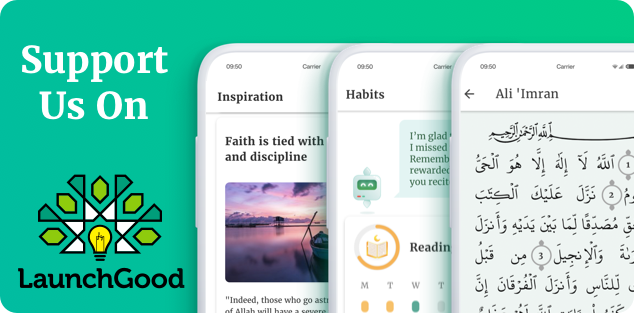Accountability comes as part of any job description, and your Ramadan mustn’t be made an exception.
Now that we’ve arrived at the half-way mark of Ramadan, an assessment of the previous two weeks is a must in preparation for what remains, that’s if you’re serious about graduating from the University of Ramadan having qualified for Allah’s forgiveness, mercy and eventual entry to paradise.
Umar Ibnul Khattaab said:
حاسبوا أنفسكم قبل أن تحاسبوا، وزنوها قبل أن توزنوا، فإن أهون عليكم في الحساب غداً أن تحاسبوا أنفسكم اليوم، وتزينوا للعرض الأكبر، يومئذ تعرضون لا تخفى منكم خافية
“Hold yourselves accountable before you are held accountable, and weigh up your good deeds before they are weighed for you, for your reckoning will be easier tomorrow if you start with yourself today. Beautify your deeds in preparation for the grand presentation before Allah, on a day where you shall be exposed. Not a secret of yours shall be hidden.”
It really isn’t sufficient to just tell ourselves, “I need to hold myself accountable”. More is needed; a review session, where you check in with yourself and actively ask some difficult questions;
What have I done well this Ramadan?
What must be improved?
What should I have avoided?
Maymoon Ibnu Mahraan said:
لا يَكُونُ الْعَبْدُ تَقِيًّا حَتَّى يَكُونَ أَشَدَّ مُحَاسَبَةً لِنَفْسِهِ مِنَ الشَّرِيكِ لِشَرِيكِهِ
“The station of righteousness cannot be attained till one is harsher in his self-accountability than that of two business partners.”
Al-Ahnaf Ibnu Qays would go to the extent of regularly putting his finger in the flame of his candle, as he said to himself:
حس يا حنيف، ما حملك على ما صنعت يوم كذا؟ ما حملك على ما صنعت يوم كذا؟
“Feel this. What made you do such and such on such and such day? And why did you do such and such on such and such day?”
They knew that this approach will not only ease their accountability on the Day of Reckoning tomorrow, but will also enhance their performance as worshippers of Allah today.
How do I hold myself accountable? What does it look like? Here is a suggestion:
(1) Start by filling the holes in your obligatory acts of worship.
“Are my five daily prayers still lacking?”
“Is my Zakaah yet to be issued?”
“Am I still neglecting the book of Allah?”
(2) Then, move onto true repentance from the existing sins.
“Am I still involved in secret sinful conversations?”
“Am I yet to quit my prohibited addictions?”
“Is my Hijaab & public presentation of myself still lacking?”
“Is my fall-out with such and such yet to be amended?”
“Am I yet to learn how to fear Allah and lower my gaze?”
“Are I yet to purify my income from the prohibited?”
(3) Then, move onto the levels of excellence
“How often does my heart tremble at Allah’s remembrance?”
“Do I need to sleep less? Am I wasting too much time?”
“Do I have a plan of daily Islamic learning?”
“Am I yet to crave the moments of privacy with Him?”
“Is my worship still one of a tick-box exercise?”
“Am I yet to prepare a project for my hereafter?”
In the experience of every professional, accountability is the single biggest differentiator between successful and unsuccessful outcomes.
We’re at the half-way point, so let’s show Allah that Ramadan is of far greater importance to us than any worldly affair.
Subscribe for Updates
Original content used with permission from:






